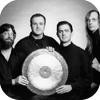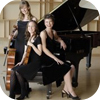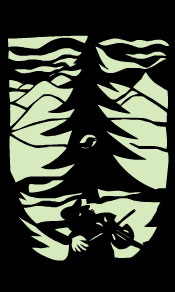I don’t normally quote press releases wholesale, but I don’t know what I could better in my own account (though be sure to read the last paragraph for some extra sweet deals). So…
……………….
On Thursday, May 20th, Metropolis Ensemble will present Home Stretch, in two performances featuring the compositions of composer/pianist Timothy Andres presented alongside two composers who have inspired his unique style: Wolfgang Mozart, and the father of ambient music, Brian Eno. Also featured will be the New York Premiere of Anna Clyne’s elegiac work for string orchestra, Within Her Arms. In keeping with Metropolis Ensemble’s mission to re-imagine the concert experience, each audience member will be handed a chair as they enter the Angel Orensanz Center and will be allowed to seat themselves where they like, giving them the opportunity to control their concert experience and to create a more social and interactive environment.
 Andres‘ piano concerto, Home Stretch, was written as a companion piece to Mozart’s K. 465. He explains that, “My last attempt at a piano concerto was when I was 15, and since then, I’ve mostly lost interest in the typical “virtuosity for its own sake” soloist versus orchestra dynamic of the genre. Luckily, the Mozart-sized forces led me to approach Home Stretch as chamber music, allowing for more subtle gestures and interplay between musicians.”
Andres‘ piano concerto, Home Stretch, was written as a companion piece to Mozart’s K. 465. He explains that, “My last attempt at a piano concerto was when I was 15, and since then, I’ve mostly lost interest in the typical “virtuosity for its own sake” soloist versus orchestra dynamic of the genre. Luckily, the Mozart-sized forces led me to approach Home Stretch as chamber music, allowing for more subtle gestures and interplay between musicians.”
For the concert Andrew Cyr, Metropolis Ensemble’s Artistic Director/Conductor, asked Andres to write music to pair with Home Stretch, which led to Brian Eno: Paraphrase on themes of Brian Eno. Andres remarks that, “I immediately thought of the spacious, static opening section of Home Stretch and the huge debt it owes to Eno’s harmonies and timbres. The result is a 19th-century style “orchestral paraphrase” on the subject of Eno’s music, focusing on the albums Before and After Science and Another Green World, with some Apollo by means of an introduction.
Much of the solo part of, Piano Concerto No. 26 “Coronation”, one of Mozart’s most popular concertos, was left unfinished by the composer. Inspired by the conception of music as a living art form, Metropolis Ensemble has commissioned Andres to compose new music for the left hand part as well as an entirely new solo cadenza to be performed on the evening concert by Andres.
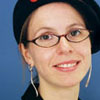 Anna Clyne‘s Within Her Arms was a 2009 commission from Esa-Pekka Salonen as part of the Los Angeles Philharmonic’s Green Umbrella series. Metropolis Ensemble presents the New York Premiere of this work for string orchestra. Within Her Arms, dedicated to Clyne’s mother, brings to mind the English Renaissance masterpieces of Thomas Tallis and John Dowland.
Anna Clyne‘s Within Her Arms was a 2009 commission from Esa-Pekka Salonen as part of the Los Angeles Philharmonic’s Green Umbrella series. Metropolis Ensemble presents the New York Premiere of this work for string orchestra. Within Her Arms, dedicated to Clyne’s mother, brings to mind the English Renaissance masterpieces of Thomas Tallis and John Dowland.
 Also, only on the afternoon concert’s bill, Andrew Norman‘s work for eight virtuoso violins, Gran Turismo. Norman writes: “Rewind my life a bit and you might find a particular week in 2003. I was researching the art of italian Futurist Giacomo Balla for a term paper, watching my roommates play a car racing video game called Gran Turismo, and thinking about the legacy of Baroque string virtuosity as a point of departure for my next project. It didn’t take long before I felt the resonances between these different activities, and it was out of their unexpected convergence that this piece was born.”
Also, only on the afternoon concert’s bill, Andrew Norman‘s work for eight virtuoso violins, Gran Turismo. Norman writes: “Rewind my life a bit and you might find a particular week in 2003. I was researching the art of italian Futurist Giacomo Balla for a term paper, watching my roommates play a car racing video game called Gran Turismo, and thinking about the legacy of Baroque string virtuosity as a point of departure for my next project. It didn’t take long before I felt the resonances between these different activities, and it was out of their unexpected convergence that this piece was born.”
……………….
Remember now, we’re talking two concerts, both on Thursday, May 20: at 1pm, Trinity Wall Street (79 Broadway), and again at 8pm at the Angel Orensanz Center (172 Norfolk Street). The afternoon gig is FREE, but click here for an RSVP or tickets to the evening gig. And that’s not all, folks: “This project has been in the works for two years and coincides with the Nonesuch release of Andres’ new CD Shy & Mighty. We will be running a promotion at Timo’s CD launch event at Le Poisson Rouge on Monday, May 17. Anyone who buys a ticket for the Thursday night concert at the event on Monday will receive a free copy of Shy and Mighty. We would also like to extend a special offer to readers of Sequenza21: we would like to offer 2 for 1 general seating tickets with the code sequenza21“.
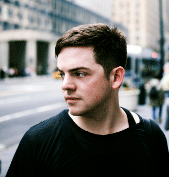

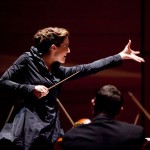
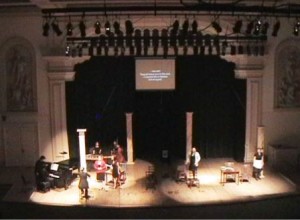
 Nationally syndicated shows on NPR don’t tend to pay much attention to new music unless it’s of the indie rock variety. But the nationally syndicated show Studio 360 (produced by WNYC in New York), spends the first part of the program this week talking with Jennifer Higdon — not so much about winning the Pulitzer Prize and a Grammy this year (although those are the motivating factors for her being booked on the show) but, rather, on questions of relevance to anyone making a life in contemporary music from reaching audiences to the process of composition, etc. The show is available online at
Nationally syndicated shows on NPR don’t tend to pay much attention to new music unless it’s of the indie rock variety. But the nationally syndicated show Studio 360 (produced by WNYC in New York), spends the first part of the program this week talking with Jennifer Higdon — not so much about winning the Pulitzer Prize and a Grammy this year (although those are the motivating factors for her being booked on the show) but, rather, on questions of relevance to anyone making a life in contemporary music from reaching audiences to the process of composition, etc. The show is available online at 
